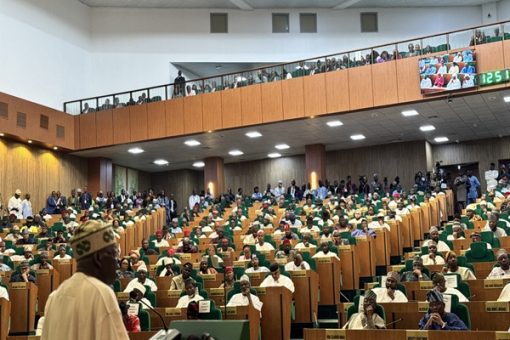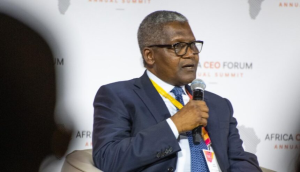
President Bola Ahmed of Nigeria, Tinubu on Wednesday, December 18, 2024 presented the 2025 Appropriation Bill to a joint session of the National Assembly, unveiling a ₦47.90 trillion financial blueprint titled the “Budget of Restoration: Securing Peace, Rebuilding Prosperity.” The ambitious plan aims to stabilize Nigeria’s economy, create an equitable business environment, and foster inclusive growth. Tinubu emphasized that the budget aligns with his administration’s Renewed Hope Agenda, which prioritizes poverty reduction, equitable income distribution, and human capital development as key pillars for the country’s advancement.
While addressing lawmakers, Tinubu said, “The 2025 Budget seeks to restore macroeconomic stability, enhance the business environment, foster inclusive growth, employment, and poverty reduction, and promote equitable income distribution and human capital development.” He added, “Our budgetary allocations reflect the administration’s strategic priorities, especially in the implementation of the Renewed Hope Agenda and its developmental objectives.”
The 2025 budget framework projects government revenue at ₦34.82 trillion, leaving a fiscal deficit of ₦13.08 trillion, representing 3.89% of GDP. Of the total expenditure, ₦15.81 trillion is allocated for debt servicing. Despite the ambitious figures, the President described the budget as a “critical investment in Nigeria’s future,” expressing confidence that it would drive significant progress in key economic metrics. Tinubu projected a substantial drop in inflation from 34.6% to 15% by next year and anticipated an improvement in the naira exchange rate to ₦1,500 per US dollar from its current level of approximately ₦1,700. Crude oil production is expected to rise to 2.06 million barrels per day, reflecting optimism about increased revenue from the oil sector.
“The numbers for our 2025 budget proposal tell a bold and exciting story of the direction we are taking to retool and revamp the socio-economic fabric of our society,” Tinubu said. He elaborated further: “In 2025, we are targeting 34.82 trillion naira in revenue to fund the budget. Government expenditure in the same year is projected to be 47.90 trillion naira, including 15.81 trillion naira for debt servicing. A total of 13.08 trillion naira, or 3.89 percent of GDP, will make up the budget deficit.”
The proposed budget is built on several strategic observations, including increased local refining capacity, which will reduce petroleum imports and boost exports. Tinubu noted, “Reduced importation of petroleum products alongside increased export of finished petroleum products; bumper harvests, driven by enhanced security, reducing reliance on food imports.” Additionally, the administration anticipates a surge in foreign investments and higher foreign exchange inflows driven by foreign portfolio investments. The oil and gas sector is also expected to see improved output and significantly reduced upstream production costs, strengthening export earnings and overall economic performance.
The President expressed optimism that these efforts will yield tangible results for the economy. “The budget projects inflation will decline from the current rate of 34.6 percent to 15 percent next year, while the exchange rate will improve from approximately 1,700 naira per US dollar to 1,500 naira,” he stated. He added, “These projections are based on increased crude oil output and exports, coupled with a substantial reduction in upstream oil and gas production costs.”
President Tinubu emphasized that the 2025 budget reflects his administration’s commitment to tackling Nigeria’s socio-economic challenges and creating an environment conducive to long-term development. He reassured Nigerians that the Renewed Hope Agenda remains at the core of his policies, with allocations designed to retool and revamp the nation’s socio-economic fabric. Tinubu concluded, “This is an ambitious but necessary budget to secure our future.”
As the Appropriation Bill awaits deliberation and approval by the National Assembly, Tinubu’s bold proposals mark a critical step in his administration’s mission to rebuild prosperity and secure a sustainable future for Nigeria.








